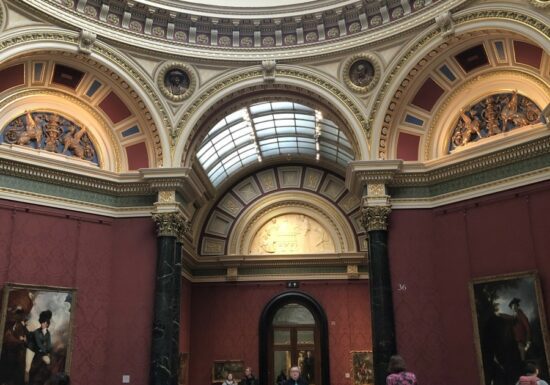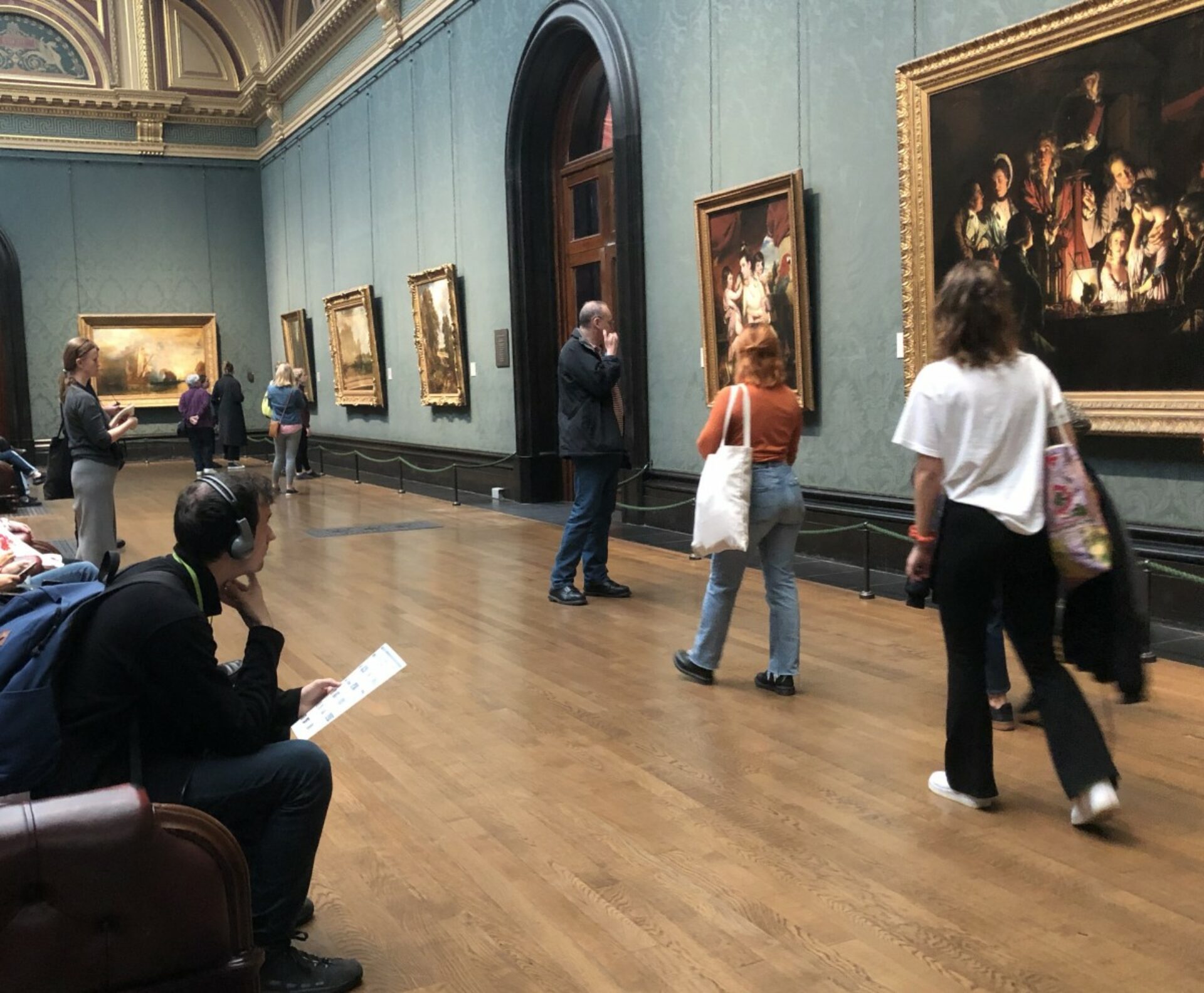A member of McPin Young People’s Network reflects on stigma and the importance of lived experience after helping design an audio tour at the National Gallery for World Mental Health Day.
Hannah Roberts
Recently, I have been working with a small group of people from the McPin Young People’s Network to design an audio tour at the National Gallery in London for World Mental Health Day.
The tour aims to challenge enduring misconceptions about mental health and invites listeners to consider their personal views and reflect on their own wellbeing for the duration of the tour.
It concludes by thanking listeners and signposting them to further support and advice if they feel they need it.
The tour was created in collaboration with researchers from Kings College, the Young Producers, the group at the gallery tasked with increasing its relevance to young people, Antenna International and National Gallery staff.
Engaging millions in mental health awareness
The project interested me as it focuses on the impact of mental health, and in particular, young people’s mental health. As a student mental health nurse with an interest in CAMHS, participating in the project seemed a perfect opportunity to both expand my knowledge and demonstrate my passion.
I also appreciated the relationality of mental health and art as, although I’m no artist, I feel my creative outlets such as photography and writing benefit my own mental health. I was also attracted by the chance to contribute to raising awareness of mental health.
5.9 million people visited the National Gallery in 2018-19, so it is likely that several million people will interact with the audio tour in the six months it is available. While slightly unnerving, this is also incredibly exciting.

Deciding which misconceptions to address
To plan the audio tour, we attended regular workshops at the National Gallery. These enabled us to get to know other members of the team and become familiar with the galleries and art pieces themselves.
As our plans progressed, we discussed which misconceptions we wanted to address. We identified many myths, which we eventually narrowed down to ten.
These included the myth that most people experiencing mental ill health are violent, dangerous, or attention seeking, the myth that mental health problems do not affect ethnic minorities or those in low-income countries, and the myth that mental ill health is a sign of weakness.
Their sharing of their lived experience enriched my understand of the direct, personal impact of the myths and the importance of publicly refuting them. [It] felt like the only way to truly encapsulate the views of those affected.
What I found particularly interesting during these sessions was the focus on collaboration and reflection. Some members of the group had lived experience of mental ill health and I found their accounts and perspectives invaluable for the development of the project and personally inspiring.
Their sharing of their lived experience enriched my understand of the direct, personal impact of the myths and the importance of publicly refuting them. Involvement of experts by experience felt like the only way to truly encapsulate the views of those affected.
Mental ill health does not discriminate and we all experience it to some degree. To improve the mental wellbeing of ourselves and others we must work on building a fair, non-judgemental environment, free of stigma in which people feel able to seek help when needed.
I hope by raising awareness of mental ill health and the experiences of those who deal with it, the audio tour will contribute to a positive change of culture from stigmatisation to support. I also hope the tour provides a moment of respite and reflection for those living with mental ill health and an illuminating and enjoyable experience for everyone.
It has been a privilege working on the project these past months and I’m very proud to have participated.
Read more about this project in Designing an audio tour for the National Gallery.
The audio tour will be available at the National Gallery from World Mental Health Day on 10th October 2019 for six months. Please bring a pair of headphones and your phone to listen using the National Gallery app.
Read more about McPin’s involvement here.
Hannah Roberts is a member of the McPin Young People’s Network. This is a group of young people with a range of different mental health and life experiences from across the country.
We provide involvement opportunities through this network and draw on it when researchers approach us, seeking young people’s input on their mental health research project. For more information and to sign up to the network, see https://mcpin.org/get-involved/youngpeople/
